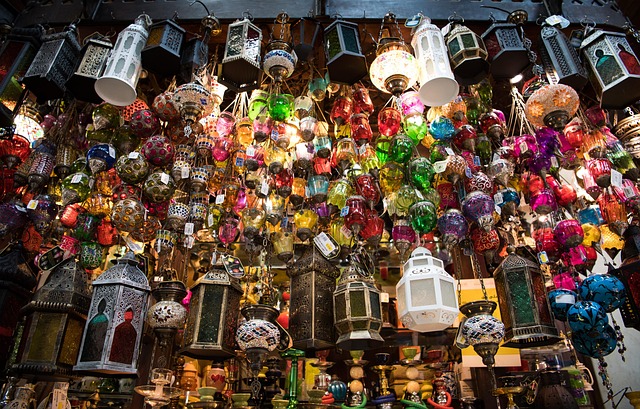Traditional games serve as experiential lessons, instilling customs and heritage in ways that textbooks simply can’t. Think of it like learning to ride a bike; you can read all about it, but nothing beats the thrill of actually doing it! When communities engage in their traditional games, they’re not just having fun—they’re passing down knowledge, skills, and even languages. It’s a living history lesson that resonates from generation to generation.
Have you noticed how playing certain games often evokes feelings of belonging and pride? It’s like returning to a beloved family gathering, where everyone knows the rules and laughter reigns supreme. These games create bonds, nurturing relationships that bridge age gaps, cultures, and even social divides. Through these playful interactions, cultural identity is reinforced, allowing communities to celebrate what makes them unique while also fostering inclusivity.
Playing with Heritage: How Traditional Games Shape Cultural Identity
Playing these heritage-rich games isn’t merely about winning or losing; it’s a journey through time. They often embody the values, beliefs, and folklore of the communities that created them. For instance, when kids gather for a game of tag, they’re not just sprinting around; they’re also steeped in traditions of togetherness and playful competition that have thrived for centuries. Isn’t it fascinating how a simple game can bind people through shared laughter and history?
Just imagine the thrill of listening to your grandparents share tales of how they played the same games you are now engaging with. It’s like weaving a thread between generations. Traditional games cultivate a sense of belonging and awareness of one’s cultural identity, acting as a bridge that connects the past with the present. They remind us of our shared experiences, fostering unity in an increasingly globalized world.
Beyond Entertainment: The Role of Traditional Games in Preserving Cultural Narratives

And let’s not forget how these games celebrate cultural diversity. Have you ever tried learning a Native American stick game? You’re not just playing; you’re engaging with a rich narrative that teaches you about indigenous history and customs, all while having a blast. It’s like learning a new language without even realizing it. Through play, we absorb traditions and moral lessons, blending fun and culture into one seamless experience.
From Ancestral Roots to Modern Play: The Significance of Traditional Games in Cultural Identity
Take a moment to picture a family gathering where everyone, from the youngest cousin to grandma, dives into a spirited game of Ludo or a competitive round of tag. These moments are steeped in rituals, echoing the laughter and joy of our ancestors. They remind us of simpler times when a game could bring together a community, sparking a sense of belonging and identity. Isn’t that incredible?
Now, let’s think about how these traditional games transform in the modern world. While smartphones and video games dominate, many of us find ourselves yearning for those genuine connections fostered through face-to-face interactions. Traditional games act like a time capsule; they not only preserve age-old customs but also teach us vital life skills like teamwork, strategy, and resilience. You could say these games are like cultural DNA, encoding vital societal values and wisdom.
Bridging Generations: How Traditional Games Foster Community and Cultural Belonging
When families gather to play traditional games, it’s like opening a time capsule. You can feel the enthusiasm of the elders—those who once played these games as kids—surge through the room. It’s their joyful laughter that reminds us of simpler times and binds us together. How powerful is that? These games often carry lessons and values that generations have cherished. Resilience, teamwork, and strategy manifest themselves as players navigate the twists and turns of game rules that are often steeped in cultural significance.
Moreover, in this age of technology, where screens dominate our attention, traditional games offer a breath of fresh air—a reminder that community doesn’t exist in isolation. They foster connections not only among family members but also within the larger community. Think about it: a neighborhood game night can bring together diverse cultures, each adding its own flair and flavor to the experience. It’s like a melting pot of memories, laughter, and sometimes, a little friendly competition.
So, next time you gather with family or friends, consider dusting off those traditional games. You might just unlock a treasure trove of joy, connection, and cultural belonging that can leave everyone feeling a little more grounded.
Game On: The Vital Link Between Traditional Games and Cultural Heritage
These games are often steeped in history and reflect the values and customs of their communities. Think of chess, with its strategic depth, originating from ancient India, or the lively dance of Mexican Lotería that combines entertainment with storytelling. Each move, each card drawn, speaks volumes about the cultures they come from. Isn’t it fascinating how a simple game can hold so much meaning?

And let’s not overlook the educational aspect! Many traditional games teach critical thinking and teamwork skills. It’s like sneaking vegetables into your favorite dish—fun without you even realizing you’re learning. Through these games, younger generations gain insight into their cultural backgrounds, ensuring that the essence of these traditions continues to thrive.
Unlocking Identity: The Cultural Resonance of Traditional Games Across Generations
These games are more than just entertainment; they’re cultural cornerstones. Each one carries elements of history and social norms, often encapsulating the values and beliefs of the communities that created them. For instance, when grandparents teach their grandkids how to play chess or ludo, they’re not just focusing on the rules; they’re sharing wisdom, strategy, and a part of their identity. Isn’t it amazing how a simple board can serve as a bridge between ages?
Picture this: a rainy afternoon, the storm raging outside, but inside, there’s laughter echoing as families gather around a game board. It’s a scene that transcends time, reminding us that while the world outside may change, the heart of family connection remains the same. Traditional games foster teamwork, patience, and sometimes, a little friendly competition, reminding us that every win and loss adds to the experience of life.
Moreover, with technology pulling us in different directions, the charm of these traditional games is like a warm hug from the past. They encourage face-to-face interaction, storytelling, and bonding, creating memories that linger long after the last piece is put away. Think of them as the glue that holds our cultural identities together, urging us to celebrate our heritage and pass it on to those who will come after us.
A Game of Tradition: Why Preserving Indigenous Games Matters for Cultural Identity
Preserving these games is vital for cultural identity. Think about it: every time a child participates in a traditional game, they’re not just playing; they’re stepping into the shoes of their ancestors. It’s like opening a time capsule, where agility and teamwork blend with lessons about resilience and cooperation. With every toss of a spear or leap over a hurdle, players connect with their heritage, feeling the pride and wisdom passed down through the years.
Now, let’s consider what happens when these games fade away. It’s a bit like losing a thread from a beautifully woven tapestry. Without these threads, the colors of cultural identity begin to dull, and the stories that once flourished risk becoming lost whispers in time. By engaging in indigenous games, communities not only keep their heritage alive but also foster a sense of belonging. It’s all about unity, where different generations come together over a shared passion, reinforcing that beautiful sense of connection we all crave.
Moreover, think about how these games can inspire creativity and innovation. When a fresh approach is combined with ancestral wisdom, today’s youth can infuse new life into ancient traditions, making them relevant and exciting in the contemporary world. Just like a river that flows, evolving yet ever-present, preservation allows cultures to thrive, adapt, and continue to teach invaluable lessons. Isn’t it amazing how something as simple as a game can carry such profound significance?


![How Do Different Cultures Celebrate New Year [Global Guide]? How Do Different Cultures Celebrate New Year [Global Guide]?](https://travel-tips.net/wp-content/uploads/2025/09/how-do-different-cultures-celebrate-new-year-global-guide-1758919069304-450x255.png)

![What Makes Japanese Tea Ceremony So Significant [Cultural Guide]? What Makes Japanese Tea Ceremony So Significant [Cultural Guide]?](https://travel-tips.net/wp-content/uploads/2025/09/what-makes-japanese-tea-ceremony-so-significant-cultural-guide-1758919144390-427x255.jpeg)